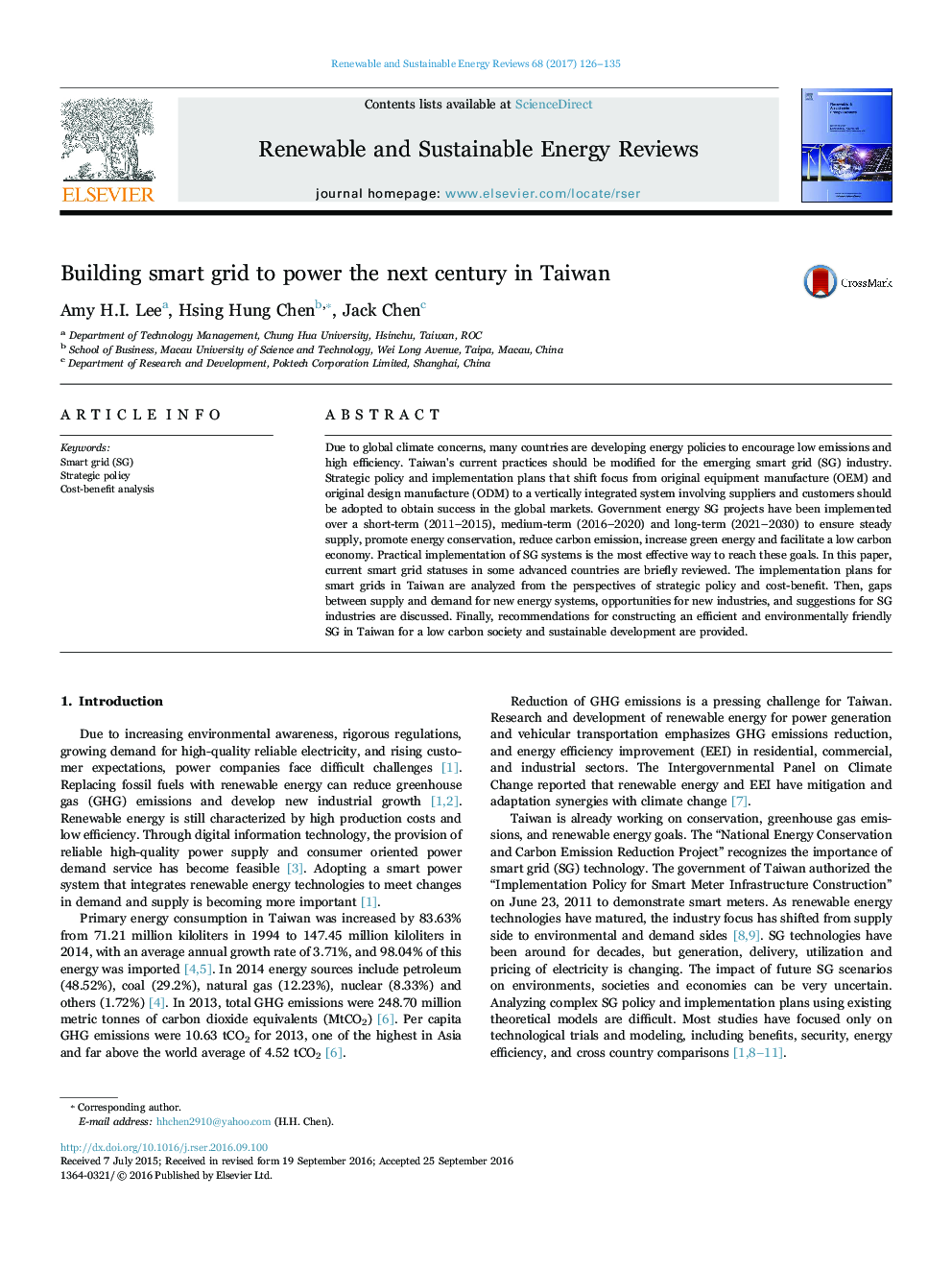| Article ID | Journal | Published Year | Pages | File Type |
|---|---|---|---|---|
| 5482660 | Renewable and Sustainable Energy Reviews | 2017 | 10 Pages |
Abstract
Due to global climate concerns, many countries are developing energy policies to encourage low emissions and high efficiency. Taiwan's current practices should be modified for the emerging smart grid (SG) industry. Strategic policy and implementation plans that shift focus from original equipment manufacture (OEM) and original design manufacture (ODM) to a vertically integrated system involving suppliers and customers should be adopted to obtain success in the global markets. Government energy SG projects have been implemented over a short-term (2011-2015), medium-term (2016-2020) and long-term (2021-2030) to ensure steady supply, promote energy conservation, reduce carbon emission, increase green energy and facilitate a low carbon economy. Practical implementation of SG systems is the most effective way to reach these goals. In this paper, current smart grid statuses in some advanced countries are briefly reviewed. The implementation plans for smart grids in Taiwan are analyzed from the perspectives of strategic policy and cost-benefit. Then, gaps between supply and demand for new energy systems, opportunities for new industries, and suggestions for SG industries are discussed. Finally, recommendations for constructing an efficient and environmentally friendly SG in Taiwan for a low carbon society and sustainable development are provided.
Related Topics
Physical Sciences and Engineering
Energy
Renewable Energy, Sustainability and the Environment
Authors
Amy H.I. Lee, Hsing Hung Chen, Jack Chen,
